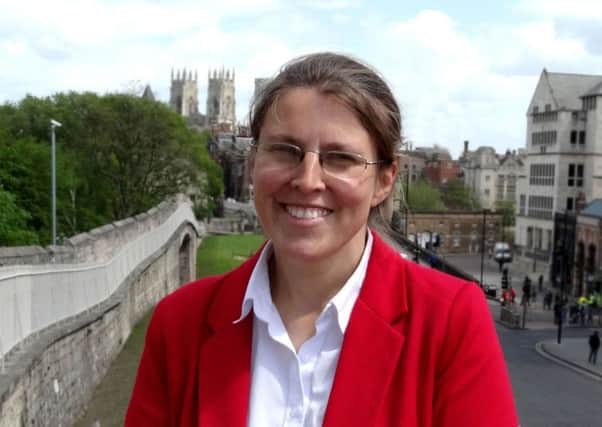Older people should be treated as individuals, '˜not dates on a calendar'


Speaking as the Yorkshire Post revealed how the number of over 65s in the region is set to increase by 42 per cent, from 860,000 in 2011 to 1.2m in 2038, York Central Labour MP Rachael Maskell, chair of the All Party Parliamentary Group on Ageing and Older People, said we need to “bring dignity back into the lives of older people” and ensure they are represented in every department of Government.
“Unfortunately in politics, older people are seen in a negative way - in terms of pensions and costs of care for example, but their value should be recognised and older people should be viewed as part of a positive agenda, what people are bringing to society,” she said.
Advertisement
Hide AdAdvertisement
Hide Ad“It should be seen as a privilege to support older people rather than what politics sees as negativity.
“We have got our perspectives wrong - that can be seen in social care, where workers looking after older people are among the lowest paid in the country.”
Ms Maskell was appointed as chair of the influential group in July last year, and often uses her previous experience of working as a physiotherapist in an NHS hospital to influence her work and way of thinking when it comes to older people.
“I always had a personal interest in the rights of older people, having been a clinician,” she said. “I believed their value wasn’t appreciated by wider society.
Advertisement
Hide AdAdvertisement
Hide Ad“Then, I tried to take off that badge of ‘older people’ when I was around older people. We are talking about people who have served our country, some of them in the Second World War; people who have raised their families and made a massive contribution to the country - this needs to be recognised.
“That person didn’t have a full voice, and I believe they should. They should be able to make decisions.”
Now she endeavours to see that the rights of older people - and their voices - are included in policy decisions, but she thinks wider change is also needed to see that through.
“Local authorities need the funding to be able to deliver things in their communities. We need a proactive agenda - investment in a ‘public health’ approach to older people. There used to be health visitors visiting older people finding ways of support them. People working in the community to identify what people’s needs are.
Advertisement
Hide AdAdvertisement
Hide Ad“No two people are the same. We have to treat everyone as an individual, rather than a date on a calendar.”
And that is perhaps most important when it comes to planning for the future, as people live longer.
Ms Maskell said: “We should see it as a positive, more than anything, that people are living longer. But it means that we have to plan for the future economy. For example, in housing, do we have the right type of housing? In the Netherlands, they have facilities that are flexible, so that people, as the age, they don’t have to move.
“In the future, ensuring we have the right workforce to care for growing numbers of older people is going to be a major challenge.
Advertisement
Hide AdAdvertisement
Hide Ad“The Ageing Without Children campaign group, is raising very important points - who will look after those people if those who might presume can, aren’t there?
“If we don’t start looking at these issues, then we are going to come unstuck.”
OUR changing rural communities present their own challenges when looking at how people can stay independent in later life, Ms Maskell said.
“There are many challenges in the future. If you look at rural communities, people who have traditionally lived in a these villages are being told that if they need extra support, that won’t be provided in their community. Banks closing, shops closing - these are creating barriers all the time.
Advertisement
Hide AdAdvertisement
Hide Ad“We need to support communities to bring people together. There’s a big agenda around loneliness and isolation. We need to look at these issues and put in practical solutions and see that older people do still need to socialise. Austerity cuts have had a devastating impact.”